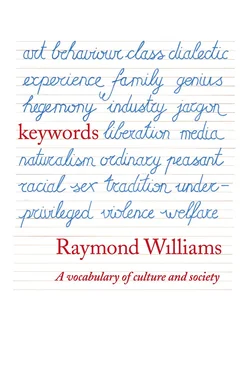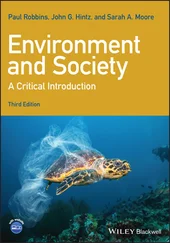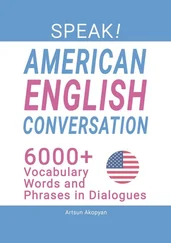For certain words I have added a number of examples of my own, from both general and deliberate reading. But of course any account is bound to be incomplete, in a serious sense, just as it is bound to be selective. The problems of adequate information are severe and sometimes crippling, but it is not always possible to indicate them properly in the course of an analysis. They should, nevertheless, always be remembered. And of one particular limitation I have been very conscious. Many of the most important words that I have worked on either developed key meanings in languages other than English, or went through a complicated and interactive development in a number of major languages. Where I have been able in part to follow this, as in alienation or culture , its significance is so evident that we are bound to feel the lack of it when such tracing has not been possible. To do such comparative studies adequately would be an extraordinary international collaborative enterprise, and the difficulties of that may seem sufficient excuse. An inquiry into the meanings of democracy , sponsored by UNESCO and intended to be universal and comparative, ran into every kind of difficulty, though even the more limited account that Naess and his colleagues had to fall back on is remarkably illuminating. I have had enough experience of trying to discuss two key English Marxist terms – base and superstructure – not only in relation to their German originals, but in discussions with French, Italian, Spanish, Russian and Swedish friends, in relation to their forms in these other languages, to know not only that the results are fascinating and difficult, but that such comparative analysis is crucially important, not just as philology, but as a central matter of intellectual clarity. It is greatly to be hoped that ways will be found of encouraging and supporting these comparative inquiries, but meanwhile it should be recorded that while some key developments, now of international importance, occurred first in English, many did not and in the end can only be understood when other languages are brought consistently into comparison. This limitation, in my notes and essays, has to be noted and remembered by readers. It is particularly marked in very early developments, in the classical languages and in medieval Latin, where I have almost invariably simply relied on existing authorities, though with many questions that I could not answer very active in my mind. Indeed, at the level of origins, of every kind, this is generally true and must be entered as an important reservation.
This raises one of the theoretical problems. It is common practice to speak of the ‘proper’ or ‘strict’ meaning of a word by reference to its origins. One of the effects of one kind of classical education, especially in conjunction with one version of the defining function of dictionaries, is to produce what can best be called a sacral attitude to words, and corresponding complaints of vulgar contemporary misunderstanding and misuse. The original meanings of words are always interesting. But what is often most interesting is the subsequent variation. The complaints that get into the newspapers, about vulgar misuse, are invariably about very recent developments. Almost any random selection of actual developments of meaning will show that what is now taken as ‘correct’ English, often including many of the words in which such complaints are made, is the product of just such kinds of change. The examples are too numerous to quote here but the reader is invited to consider only interest or determine or improve , though organic , evolution and individual are perhaps more spectacular examples. I have often found a clue to an analysis by discovery of an origin, but there can be no question, at the level either of practice or of theory, of accepting an original meaning as decisive (or where should we be with aesthetic ?) or of accepting a common source as directive (or where should we be as between peasant and pagan , idiot and idiom , or employ and imply ?). The vitality of a language includes every kind of extension, variation and transfer, and this is as true of change in our own time (however much we may regret some particular examples) as of changes in the past which can now be given a sacral veneer. ( Sacral itself is an example; the extension from its physical sense of the fundament to its disrespectful implication of an attitude to the sacred is not my joke, but it is a meaningful joke and thence a meaningful use.)
The other theoretical problems are very much more difficult. There are quite basic and very complex problems in any analysis of the processes of meaning. Some of these can be usefully isolated as general problems of signification: the difficult relations between words and concepts; or the general processes of sense and reference; and beyond these the more general rules, in social norms and in the system of language itself, which both enable sense and reference to be generated and in some large degree to control them. In linguistic philosophy and in theoretical linguistics these problems have been repeatedly and usefully explored, and there can be no doubt that as fundamental problems they bear with real weight on every particular analysis.
Yet just because ‘meaning’, in any active sense, is more than the general process of ‘signification’, and because ‘norms’ and ‘rules’ are more than the properties of any abstract process or system, other kinds of analysis remain necessary. The emphasis of my own analyses is deliberately social and historical. In the matters of reference and applicability, which analytically underlie any particular use, it is necessary to insist that the most active problems of meaning are always primarily embedded in actual relationships, and that both the meanings and the relationships are typically diverse and variable, within the structures of particular social orders and the processes of social and historical change.
This does not mean that the language simply reflects the processes of society and history. On the contrary, it is a central aim of this book to show that some important social and historical processes occur within language, in ways which indicate how integral the problems of meanings and of relationships really are. New kinds of relationship, but also new ways of seeing existing relationships, appear in language in a variety of ways: in the invention of new terms ( capitalism ); in the adaptation and alteration (indeed at times reversal) of older terms ( society or individual ); in extension ( interest ) or transfer ( exploitation ). But also, as these examples should remind us, such changes are not always either simple or final. Earlier and later senses coexist, or become actual alternatives in which problems of contemporary belief and affiliation are contested. It is certainly necessary to analyse these and other consequent problems as problems of general signification, but my emphasis here is on a vocabulary of meanings, in a deliberately selected area of argument and concern.
My starting point, as I have said, was what can be called a cluster, a particular set of what came to seem interrelated words and references, from which my wider selection then developed. It is thus an intrinsic aim of the book to emphasize interconnections, some of which seem to me in some new ways systematic, in spite of problems of presentation which I shall discuss. It can of course be argued that individual words should never be isolated, since they depend for their meanings on their actual contexts. At one level this can be readily conceded. Many of the variable senses that I have analysed are determined, in practice, by contexts. Indeed this is why I mainly illustrate the different senses by actual examples in recorded use.
Читать дальше












